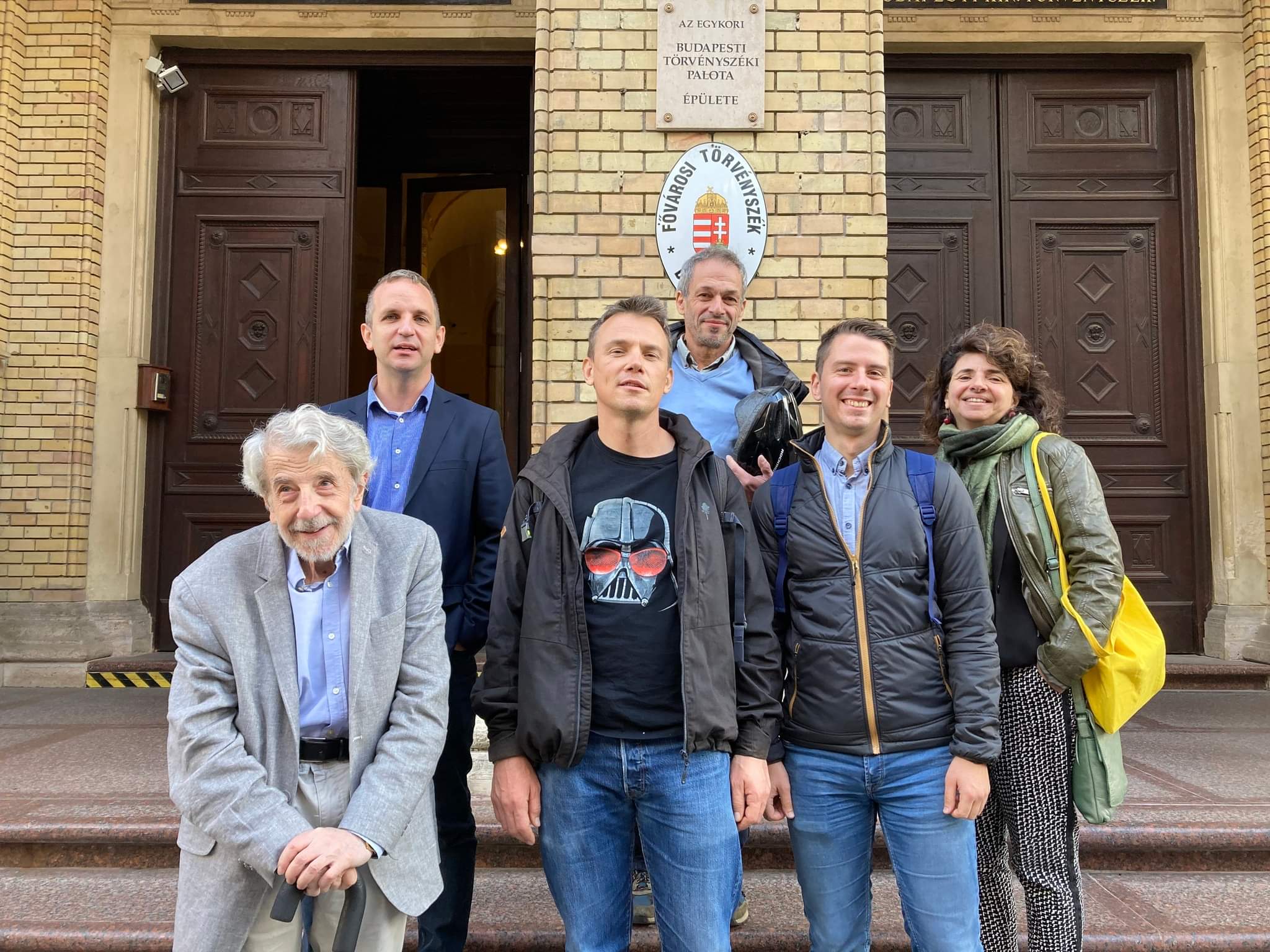
Hungarian Helsinki Committee wins a series of legal battles, protecting civil society and migrants’ rights
SRT grantee the Hungarian Helsinki Committee (the Committee) has seen a succession of three legal victories symbolising major milestones in the protection of migrants’ rights, and the rule of law against the abuse of state power and against government propaganda’s intimidation of civil society.
The first case saw the European Court of Human Rights ruling against Hungary’s ‘push-back’ policy for the second time in a Committee represented case. This policy involves physically moving back any migrant apprehended in Hungary to behind the Serbian border fence, without the possibility of asking for asylum or lodging an appeal. The European Court of Human Rights found this policy violates the prohibition of collective expulsions and the right to appeal in this context. This ruling will help cases such as Jalal, a Moroccan who travelled to Hungary across the Balkan route from Morocco. On arrival in Hungary, where he has family, he was hit by a lorry, sustaining injuries including fractures, a suspected broken hip, and multiple lacerations. He received initial treatment for 10 days in a Hungarian hospital, but was then taken to the Serbian border and told to walk, (or as he describes “crawl”, due to his injuries), across to a country he had never been to before. After spending his initial days in Serbia alone in an abandoned house, he is now in a migrant camp .
A second victory for the Committee came after several years of their strategic litigation and saw the EU Court of Justice find another piece of Hungarian legislation in breach of EU law – the practice of withdrawing refugee status and expelling long-term residents with reference to “national security concerns”. These alleged concerns are based on classified data, which are neither revealed to the persons concerned, nor their legal representative. This ruling will help cases such as Gáborné Nagy, a Russian citizen, who has been in Hungary for 21 years, after escaping Russia when she was targeted by the Russian secret services. She was granted refugee status in 2007 and is married to, and has a family with, a Hungarian man. However, in 2020, she was informed by the Hungarian authorities that she is a national security risk, with no reasons given, neither orally nor in writing. She has since lived in fear of being deported.
Finally, the Committee won a lawsuit against government propaganda outlet “Figyelő” which published the so-called list of “Soros mercenaries” in 2018. Widely seen as a blacklist of Prime Minister Orbán’s critics, the list smeared 200 civil society activists and academics. The court declared this practice unacceptable and capable of fear-mongering, and consequently obliged the outlet to pay damages and publicly apologise to the Committee’s 34 clients. This represents a symbolic victory against the intimidation of civil society in Hungary. It also consequently raises the profile of the Hungarian Helsinki Committee as a crucial defender of civic activism.
Return to grantee stories
